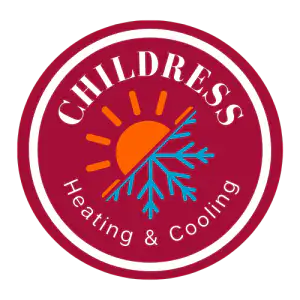9 Powerful Winter Heating Tips to Stay Warm Without Increasing Energy Bills
When winter rolls into Alabama, the chill can catch many homeowners off guard. As temperatures drop, your heating system becomes the heart of your home—but that warmth can come at a cost if you’re not careful. Fortunately, there are plenty of smart, simple ways to stay cozy this season without sending your energy bills soaring.
At Childress Heating & Cooling, we’ve spent over two decades helping families in Southside, Gadsden, and Etowah County stay comfortable through every cold snap. These expert-approved tips will help you stay warm, lower energy costs, and keep your HVAC system running efficiently all winter long.
1. Adjust Your Thermostat Wisely
Your thermostat is one of the biggest factors affecting your energy usage. According to the U.S. Department of Energy, you can save as much as 10% per year on heating and cooling by lowering your thermostat 7–10°F for 8 hours a day.
Pro Tip:
- Set your thermostat around 68°F while you’re awake and lower it a few degrees when you’re asleep or away.
- Consider investing in a programmable or smart thermostat. It automatically adjusts the temperature based on your schedule, saving energy without sacrificing comfort.
A professional HVAC technician from Childress Heating & Cooling can install and program your thermostat to help you get the most out of your heating system this winter.
2. Schedule a Professional Heating Tune-Up
Before winter weather fully sets in, make sure your furnace or heat pump is ready for the job. A professional tune-up improves performance, increases energy efficiency, and prevents costly breakdowns when you need heat most.
During a maintenance visit, your Childress Heating & Cooling technician will:
✅ Inspect and clean the heating system
✅ Check for gas or carbon monoxide leaks
✅ Ensure all components are running safely and efficiently
✅ Replace or clean filters as needed
✅ Test system performance for proper airflow and temperature balance
Regular maintenance not only reduces energy waste—it also extends the life of your heating system, saving you money long-term.
3. Replace or Clean Air Filters Regularly
Dirty air filters are one of the most common (and preventable) causes of high energy bills. When filters are clogged, your heating system must work harder to circulate air, leading to higher energy use and unnecessary wear.
How often should you replace your filters?
- Every 1–3 months, depending on your home’s dust levels, pets, and system type.
- During winter, check your filter monthly to ensure consistent airflow and efficiency.
Clean filters help your system breathe easier—keeping both your home and your energy bills comfortable.
4. Seal Drafts and Insulate Your Home
Even the most efficient heating system can’t perform well if your home is leaking heat. Drafty doors, windows, and poorly insulated attics or crawl spaces let warm air escape and cold air creep in.
Easy Ways to Stop Energy Loss:
- Add weatherstripping around windows and doors.
- Use draft stoppers at the base of doors.
- Seal cracks with caulk or expanding foam.
- Add insulation to attics and basements for maximum heat retention.
By tightening your home’s envelope, you can significantly reduce energy waste and make every degree of warmth count.
5. Take Advantage of Sunlight
Harness the power of free solar energy! On sunny winter days, open curtains or blinds on south-facing windows to let sunlight naturally warm your home. Close them at night to retain the heat.
This small step helps your HVAC system work less and keeps rooms feeling cozy during daylight hours.
6. Use Ceiling Fans for Better Air Circulation
Ceiling fans aren’t just for summer. In winter, reverse the fan’s direction clockwise and run it at a low speed. This pushes warm air trapped near the ceiling back down into living spaces—making your home feel warmer without adjusting the thermostat.
Just remember to switch the fan back to counterclockwise rotation when spring returns!
7. Avoid Blocking Air Vents and Returns
Take a quick walk through your home and check that furniture, curtains, or rugs aren’t blocking air vents or return registers. Obstructed airflow makes your heating system work harder, increasing energy use and uneven comfort.
Clear vents improve air circulation, allowing heat to move freely through your home and keeping every room consistently comfortable.
8. Invest in Energy-Efficient Upgrades
If your heating system is over 10–15 years old, it may be time to consider an upgrade. Modern HVAC systems—especially high-efficiency heat pumps and furnaces—offer major improvements in performance and energy savings.
Signs You Might Need an Upgrade:
- Frequent repairs or uneven heating
- Rising utility bills
- Strange noises or odors
- System age over 15 years
An American Standard high-efficiency system from Childress Heating & Cooling can help you stay warmer with less energy use—saving money month after month. Plus, you may qualify for rebates or tax credits that make upgrading even more affordable.
9. Don’t Forget About Indoor Air Quality
During winter, closed windows and constant heating can trap dust, allergens, and pollutants inside your home. Poor air quality doesn’t just affect comfort—it can also impact your health and your HVAC system’s efficiency.
Ways to Improve Indoor Air Quality:
- Use a whole-home air purifier to remove dust and allergens.
- Install a humidifier to prevent dry air that causes sore throats or static.
- Schedule professional duct cleaning to remove buildup and improve airflow.
With cleaner, balanced indoor air, your home will feel fresher, healthier, and more comfortable all winter long.
Bonus Tip: Schedule an Energy Audit
If you’re still struggling with high bills despite your best efforts, an energy audit can pinpoint exactly where your home is losing energy.
Our experts at Childress Heating & Cooling can help identify insulation gaps, inefficient equipment, or airflow issues so you can target the problem areas first.
Frequently Asked Questions (FAQs)
Q1: How can I reduce heating costs without lowering comfort?
A: Focus on energy efficiency—clean filters, seal leaks, and maintain your system regularly. Small improvements like thermostat adjustments and insulation upgrades go a long way.
Q2: What’s the ideal thermostat setting for winter?
A: 68°F while you’re home and awake is a good balance between comfort and savings. Lower it a few degrees when sleeping or away to save more energy.
Q3: How often should my heating system be serviced?
A: At least once a year, ideally before the winter season begins. Routine tune-ups help ensure safety, efficiency, and reliability.
Q4: Is it worth upgrading to a high-efficiency system?
A: Absolutely. High-efficiency systems can reduce your energy use by up to 30%, improve indoor comfort, and provide long-term savings.
Q5: How do I know if my home is losing heat?
A: Common signs include cold spots, drafty areas, high energy bills, and difficulty maintaining consistent temperatures. A home energy audit can confirm the source.
Q6: Can my ceiling fan really help in winter?
A: Yes! Running it clockwise helps push warm air downward, improving comfort without adjusting your thermostat.
Contact Us
Childress Heating & Cooling is your local American Standard Customer Care Dealer, proudly serving Southside, Gadsden, and Etowah County communities for over 20 years.
If your home’s comfort system needs attention, or if you believe it’s time to explore a new HVAC system, call us today—we’re always here to help keep your home running efficiently and comfortably all year long.
Phone: (256) 312-1893
Email: [email protected]
Website: Childress Heating & Cooling
Follow Us on Social Media:
- Facebook: Childress HVAC
- Instagram: @childresshvac
- Pinterest: Childress Heating and Cooling

